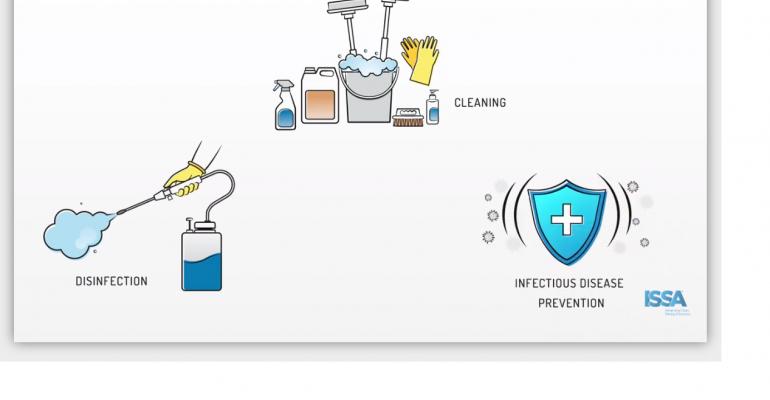Meeting venues in the United States have responded to the challenge of creating safe environments for attendees to return with an impressive commitment to hygiene and safe practices. Hilton Hotels have collaborated with Lysol to develop its CleanStay program; Marriott International convened a Global Cleanliness Council and introduced new technologies like electrostatic sprayers for its new cleaning regimen; Four Seasons has partnered with Johns Hopkins Medicine International for its Lead with Care program; and Intercontinental Hotels Group has partnered with the Cleveland Clinic to launch IHG Clean Promise.
While there is no universally accepted hygiene program accreditation in the U.S., one disinfection and infectious-disease prevention program is emerging as the most popular with large venues. Meeting planners looking for an indication of a venue’s commitment to safety can look for the Global Biorisk Advisory Council’s GBAC Star accreditation. It is backed by the International Association of Venue Managers and is being pursued by multiple large convention centers, including the Phoenix Convention Center, the Orange County Convention Center in Orlando, the Staples Center in Los Angeles, the San Diego Convention Center, and McCormick Place in Chicago. Palm Beach International Airport is also implementing the hygiene program in hopes of being awarded the star, and Hyatt Hotels has signed on to the training and advice program for more than 900 properties and will invite third-party auditors to assess its compliance.
“That certification is something that our members are now chasing,” said Brad Mayne, CEO of IAVM, speaking at the Pharma Forum virtual conference June 15. There are 20 points that are covered in the application to prove operators are doing everything possible to keep a venue safe. “The main area that we look at first and foremost is personal safety, not only for the individuals that are working the event but also those who are attending.” Other areas the certification program looks at include enhanced cleaning, entrance controls, queuing protocols, availability of sanitation masks, contract tracing, availability of isolation areas, proper handling of biohazard, and more. “As you can imagine, a whole lot of work goes into it,” Mayne said
Internationally, the World Travel & Tourism Council has introduced a Safe Travels stamp, which destinations can apply for to show that hotels, restaurants, airports, and tour operators are complying with WTTC health and hygiene protocols. So far, Cancun, Mexico; and Barcelona, Madrid, and Seville in Spain have been given approval since the WTTC began awarding the stamp on June 8.





